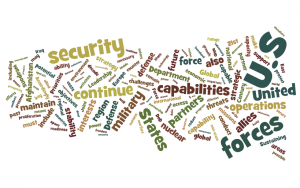The internets are alive with the sound of excitement over the appointment today by President Obama of Richard Cordray to be Director of the Consumer Finance Protection Bureau (CFPB). And, as Brian Buetler correctly points out, by doing it today, the first day of the new legislative session, Obama (assuming he gets re-elected) has provided Cordray with the longest term possible to serve as a recess appointee:
By acting today, with session two of this Congress technically under way, Obama has given Cordray the rest of this session and the full next session of the Senate to run the bureau. Cordray could potentially serve through the end of 2013.
The Congressional Research Service outlined this in a recent report (PDF) — and the White House and Senate leaders of both parties confirm the analysis.
If Obama loses in 2012, that could shorten Cordray’s tenure — and of course Cordray can leave early if he wants to. But this move makes it much more likely that the CFPB will truly take root.
Most of the banter so far has been on the viability of Obama’s move to recess appoint in this manner. I have looked at this issue for years, going back to early in the Dawn Johnsen imbroglio, and find no reason to believe this was not a proper exercise of Presidential power and prerogative.
The long and short of it is, there is no restriction on timing of recess appointments by a President pursuant to Article II, Section 2 of the Constitution. Both the “10 day rule”, which got narrowed to the “3 day rule” were practices and, at best were based on non-binding dicta from an early 90s DOJ memo; they are not now, nor have they ever been, binding law or rule. Legally, they are vapor. The issue was actually litigated in the 2004 11th Circuit case of Evans v. Stephens.
And when the President is acting under the color of express authority of the United States Constitution, we start with a presumption that his acts are constitutional.2 See United States v. Allocco, 305 F.2d 704, 713 (2d Cir. 1962) (Recess Appointments Clause case); see also U.S. v. Nixon, 94 S.Ct. 3090, 3105 (1974) (observing “In the performance of assigned constitutional duties each branch of the Government must initially interpret the Constitution, and the interpretation of its powers by any branch is due great respect from the others.”).
…….
The Constitution, on its face, does not establish a minimum time that an authorized break in the Senate must last to give legal force to the President’s appointment power under the Recess Appointments Clause. And we do not set the limit today.
And there you have it. There is no minimum time. Also, somewhat significant, is that Evans was decided by the full 11th Circuit, not a three judge panel, and SCOTUS considered a full cert application, and denied it, leaving the 11th Circuit decision standing as good law and citable precedent.
Oh, and if you wonder if SCOTUS has a real hard on for Presidential recess appointments, the answer would appear to be no. During the oral argument in New Process Steel v. NLRB last year, Chief Justice Roberts scoldingly asked Deputy Solicitor General Neal Katyal “And the recess appointment power doesn’t work why?” I am not sure the blustering Republicans like McConnell and Boehner will find quite as receptive an ear from the Roberts Court as they think.
Well, as Beutler notes, things should be all rosy and good to go for Cordray and CFPB, right? Not so fast, there is another issue not receiving any attention by the chattering classes.
The CFPB was promulgated by a pretty bizarre act – The Dodd Frank Act – bizarre, specifically, in how it structures and empowers the CFPB in its various duties. Notably, several of the key powers flow not necessarily through the agency, but through the “confirmed director” of CFPB. If there is no director, the bureau is run in the interim by the Treasury Secretary. Yep, good ‘ole Turbo Tax Timmeh Geithner. Specifically, Section 1066 provides:
The Secretary is authorized to perform the functions of the Bureau under this subtitle until the Director of the Bureau is confirmed by the Senate in accordance with section 1011. (emphasis added)
So, in all this meantime, and despite the White House trying to put the patina on that Liz Warren was running the CFPB, it has actually been Geithner. And the problem with this has been (remember I said the enabling language was bizarre??) that not all of the full powers of the CFPB vest, nor can they be exercised, until there is a director.
A director “confirmed by the Senate” according to the literal wording of the Dodd Frank Act.
If I were speculating on legal challenges to Cordray, rather than focusing solely on Obama’s ability to so appoint him (which, again, I think stands up), I might be more concerned about the issue of whether Cordray has full powers to lead and operate CFPB because he is not “confirmed by the Senate”. That should be a stupid argument you would think, but the words “confirmed by the Senate” in the enabling act make it at least a very cognizable question.
Normally a confirmed appointee and a recess appointee have the same legal authority and powers but, to my knowledge, there is no other situation in which substantive power for an agency flows only through its specific “confirmed” director. If I were going to attack Cordray, I would certainly not restrict it to the propriety of Obama’s recess appointment, I would also attack his scope of authority since he was not “confirmed”. I would like to think such a challenge fails, but Congress sure left a potential hidden boobytrap here.
